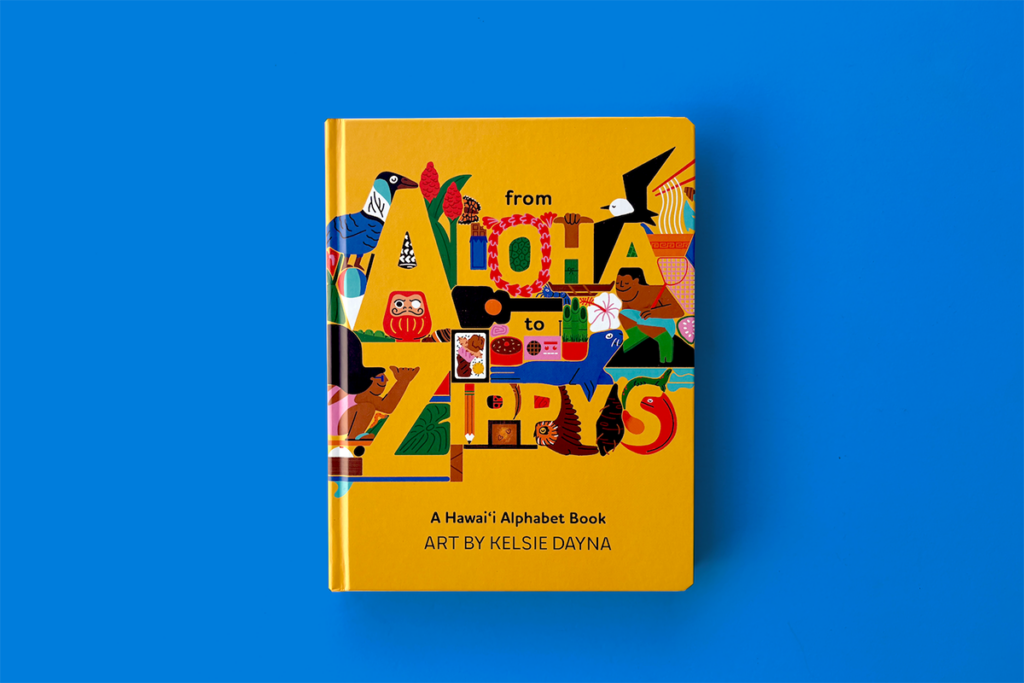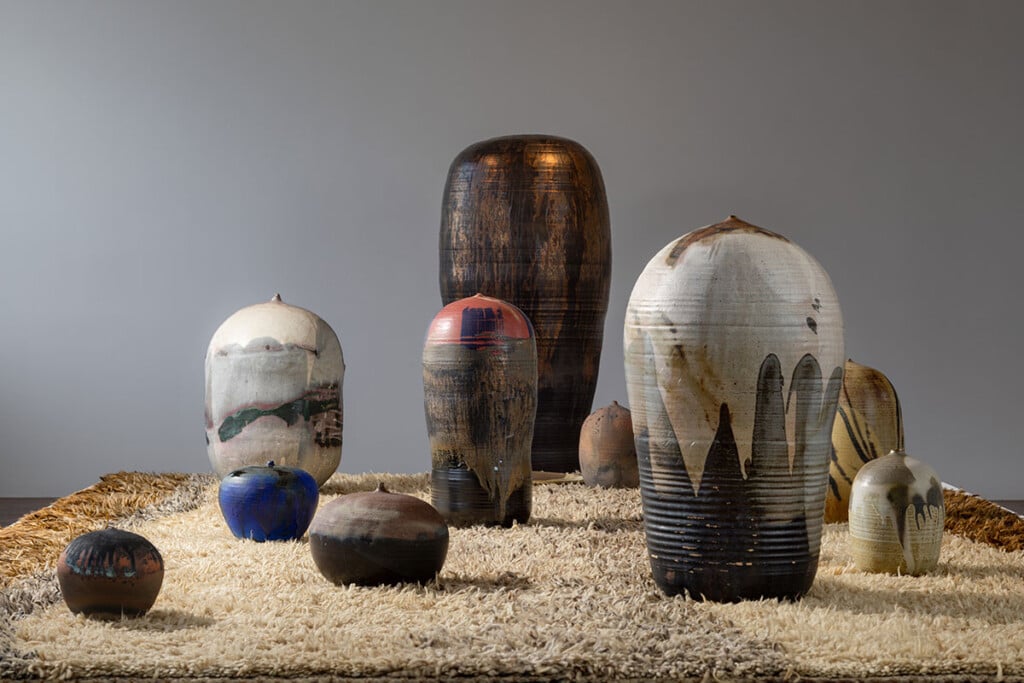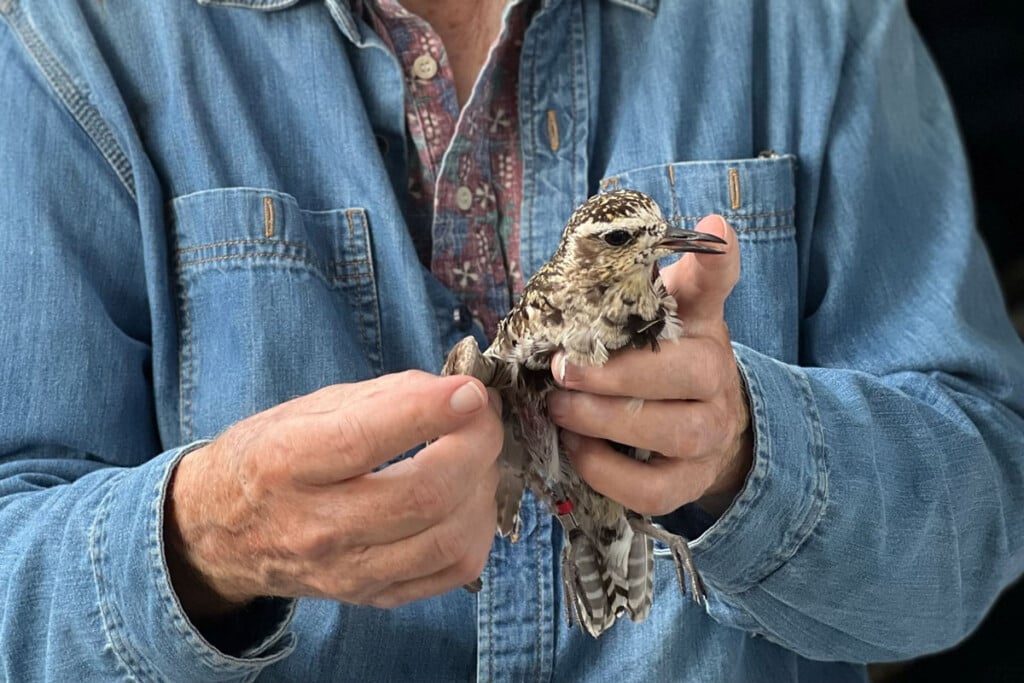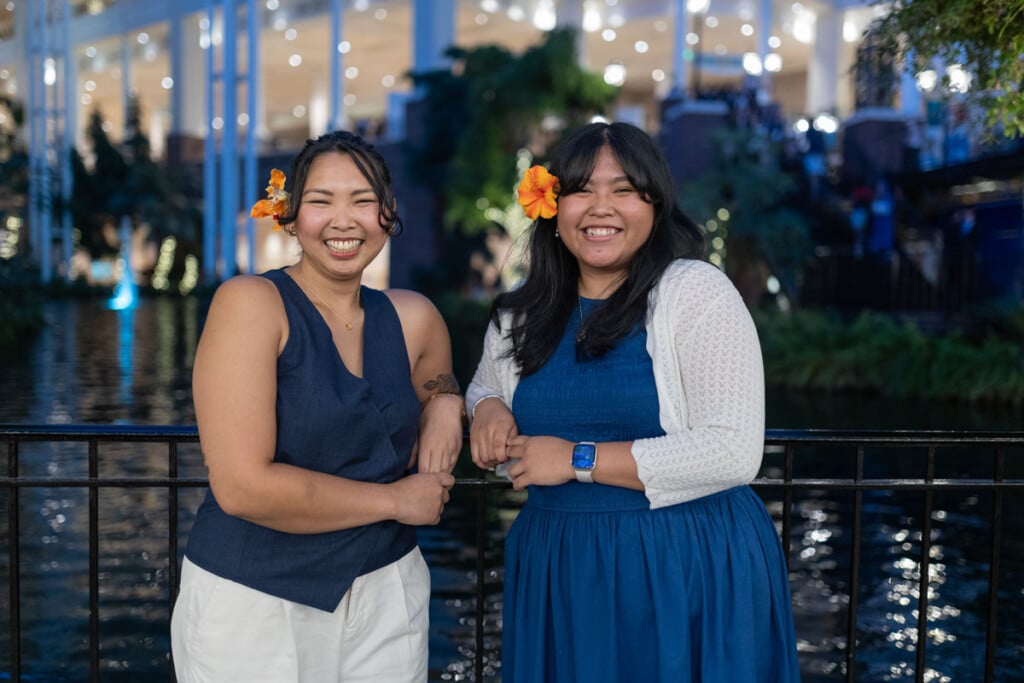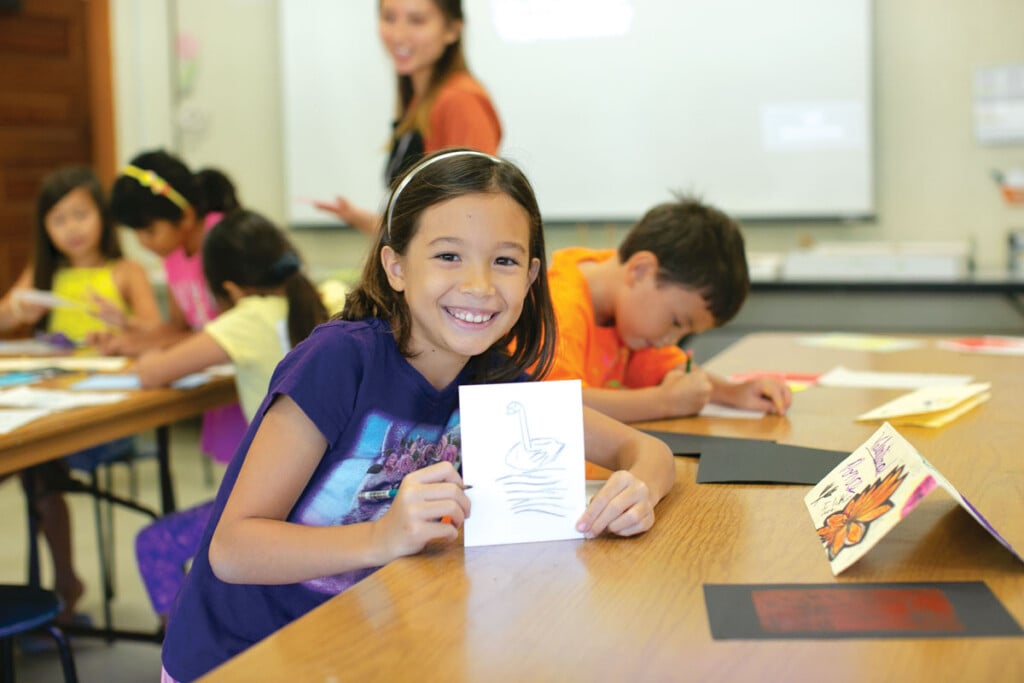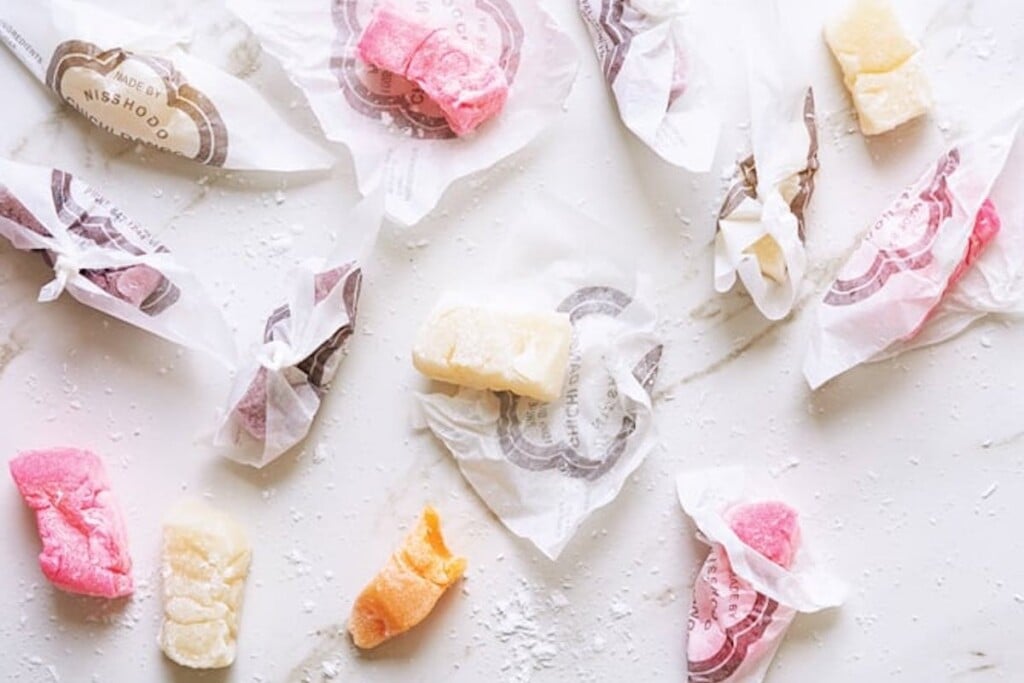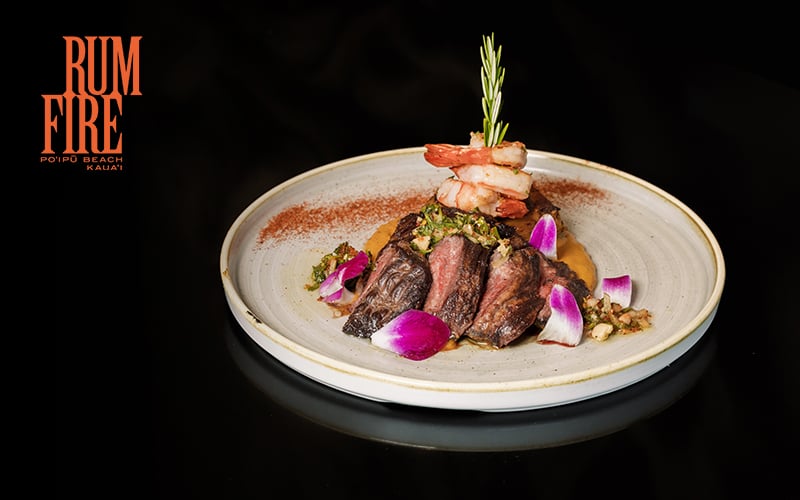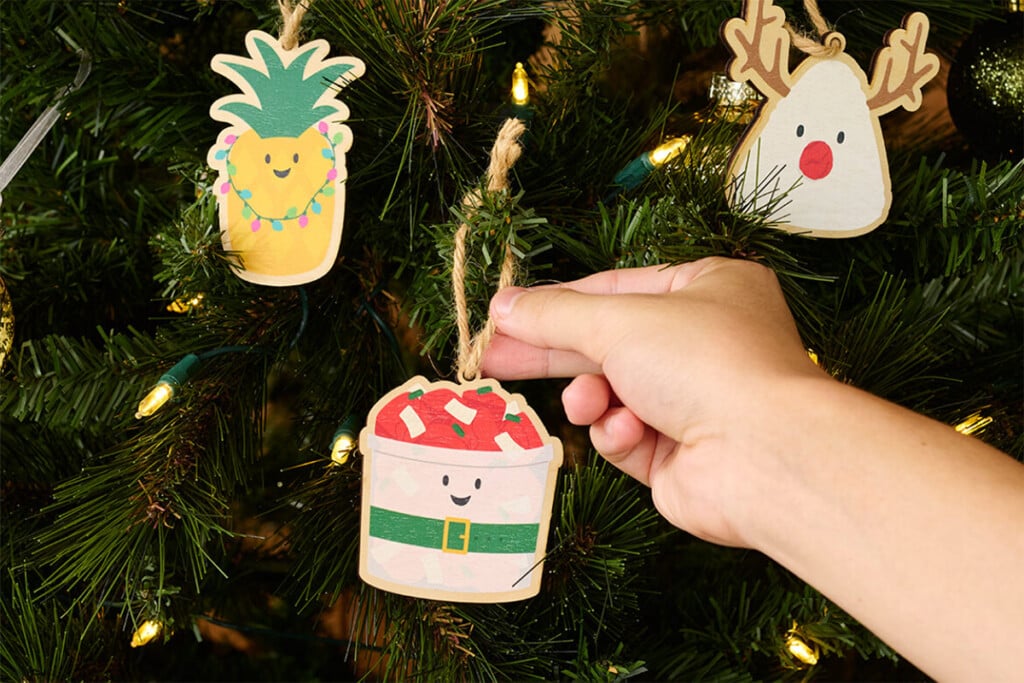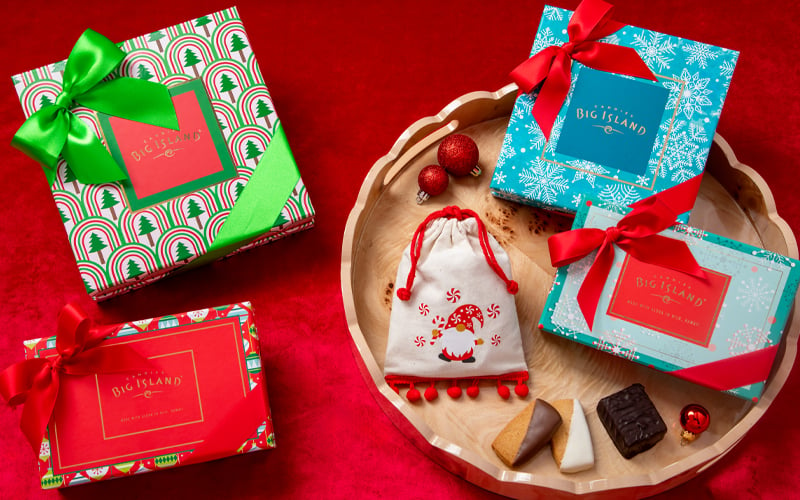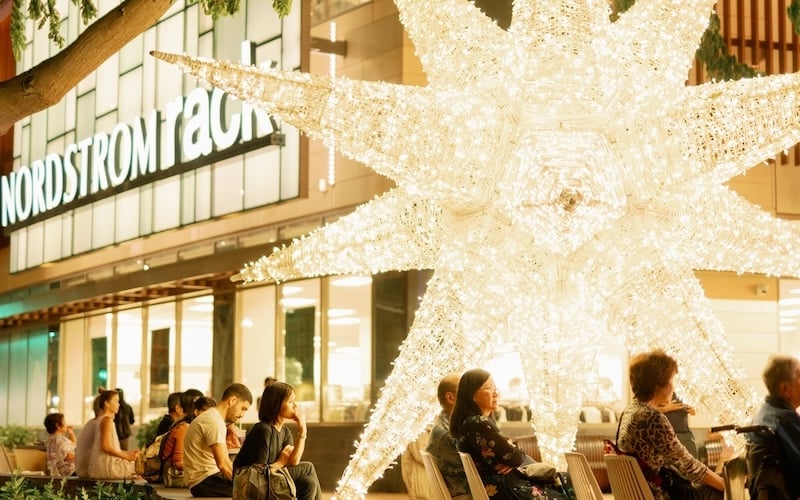Kaukau and Kūkākūkā with Kalani Pe‘a
Over malasadas and lettuce wraps, the Grammy-winning singer-songwriter talks about his bold path as a Hawaiian, from Pana‘ewa to Carnegie Hall.

From left: Kalani Pe‘a, Naka Nathaniel. Photo: Courtesy of Naka Nathaniel
For this issue’s Kaukau and Kūkākūkā, I met up with Kalani Pe‘a, who had just won his fourth Grammy for his album Kuini. He picked the spot: Cafe O’Lei in Waikapu, Maui. Pe‘a had gastric bypass surgery last year, and his weight had dropped by more than 150 pounds. While he didn’t eat more than a few bites, he did order like I’d hoped.
“I love coming [here] with my family and friends and spending lots of money, but we’re supporting local, local kanaka who work here,” Pe‘a says.
He orders the lettuce wraps and crabcakes while I have the pork belly bao. He sips on a Starbucks Americano. Instead of his name being misspelled on his cup, the barista drew a Sharpie’d heart with the message, “Have So Much Fun in Japan!” He’s leaving the next day for a multicity tour of the nation with fellow Hawaiian musician Weldon Kekauoha.
Pe‘a is the only Hawaiian recording artist to have won even one Grammy in the Best Regional Roots Album category, which includes zydeco, polka and Native American music. Hawaiian music had its own category until 2012, when it was folded into the broader “regional roots” category.
In fact, each of his four nominations has led to a golden trophy. Why does he think he’s the only Hawaiian musician to win?
It’s all about networking, he says, and not every musician does that.
“If I really want the gold for Hawai‘i, it’s the network,” he says. “It’s like campaigning to be a mayor. So I’m campaigning and sharing my mele and they’re judging. These are producers for Beyoncé. These are engineers for big artists going, ‘What’s this album? Let me hear your album.’ They’re judging not on me; they’re assessing and voting on the quality and technical quality and merit of my album.”
Pe‘a is disappointed to learn that the banana cream pie he insists on sharing with me is no longer offered. Dessert-committed, he orders malasadas, which I claim to be heretical since we are from Hawai‘i Island and Maui isn’t necessarily known for the sugary fried treat.
The malasadas arrive dangling on metal skewers above tiny metal dipping cups with ube, liliko‘i and English cream sauces. They’re kept from sliding off by a pineapple chunk. Pe‘a says that’s just Maui showing off the pineapple industry that Hawai‘i Island doesn’t have.
As true malasada connoisseurs—despite our Hawai‘i Island roots—Pe‘a and I give them above average grades. In embracing his proclivity for the finer things in life, we decide “Kalākauan” is a more appropriate label for him than “epicurean,” with King David Kalākaua being known for his proclivities to fine foods and culture.
SEE ALSO: Kaukau and Kūkākūkā: A Talk with Hawai‘i State Senator Brenton Awa
As we wrap up our meal, I ask Pe‘a about his path as a Hawaiian performer, from Pana‘ewa to places like New York’s Carnegie Hall and Lincoln Center. “To have my face and see the words ‘sold out’ on the billboard was the best feeling,” he says.
Pe‘a has taken a bold path, unafraid to assert his identities. He is a fashion standout, and I admired his heavy use of ‘Ōlelo throughout lunch even though I was often left on my heels comprehension-wise. And, while accepting his Grammy for Kuini, he called himself a “queen.” That’s far from what Israel Kamakawiwo‘ole declared about Hawaiian-ness in his intro to “Kaleohano.”
I read Kamakawiwo‘ole’s words to Pe‘a: “Hawaiian to me is the feeling of getting somewhere without stepping on anybody’s toes, without causing friction with anybody,” Iz said.
Pe‘a quickly answers: “Talk about generational gaps.”
Pe‘a says that he’s not here to step on toes, but he’s prepared to use his platform to hold others to account.
So what is his version of being a Hawaiian?
“Can we just share each other’s ‘ōlinolino, their light, and not hinder others from seeking that light? To me, that’s Hawaiian,” he says.
kalanipeamusic.com, @kalanipeamusic
